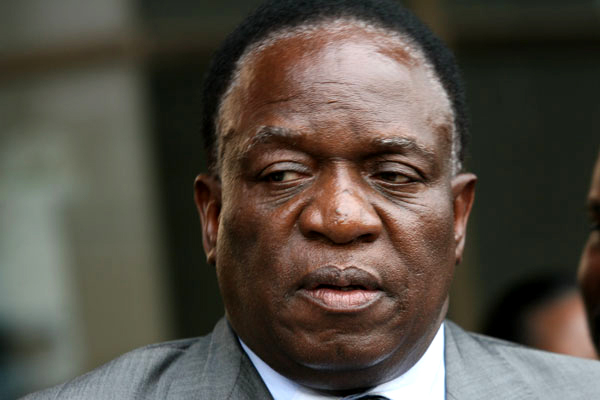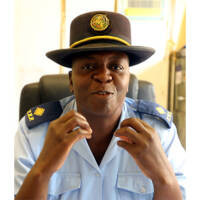
VICE-PRESIDENT Emmerson Mnangagwa on Monday denied ever uttering inflammatory statements that could have stoked tensions during the Gukurahundi era, but the denial could trigger more questions about his role during the 1980s killings.
BY STAFF REPORTER

Mnangagwa said statements attributed to him that dissidents were cockroaches that needed DDT to exterminate them were total fabrications and that he had never uttered those words.
He was responding to an article in the Southern Eye that quoted David Coltart’s recently published autobiography, The Struggle Continues: 50 years of tyranny.
The VP said his lawyers were perusing the book before “considering appropriate action to be taken to address the false and malicious statements”.
However, in newspaper articles that are likely to further embarrass the Vice-President, the Chronicle of March 5, 1983 reported Mnangagwa uttering those exact words.
“Likening the dissidents to cockroaches and bugs, the minister (Mnangagwa) said the bandit menace had reached such epidemic proportion that the government had to bring in DDT (Five Brigade) to get rid of the bandits,” the Chronicle quoted the Vice-President as saying at a rally in Victoria Falls.
- Chamisa under fire over US$120K donation
- Mavhunga puts DeMbare into Chibuku quarterfinals
- Pension funds bet on Cabora Bassa oilfields
- Councils defy govt fire tender directive
Keep Reading
Mnangagwa was minister of State Security at the time.
The article said the government had two options to deal decisively with the dissidents, with the first being to burn down all the villages “infested with the dissidents and the other was bringing in the Five Brigade. The government chose the latter”.
Mnangagwa has not challenged the statements in the past after they were published in Breaking the Silence, a report that lifted the lid on the Gukurahundi killings.
Coltart yesterday took to social media on Facebook saying: “Vice-President Mnangagwa has disputed the statements he is alleged to have made that are recorded in my book.
“These statements were taken from none other than the government-controlled Chronicle, which reported on what he said at the time. He has never sued the Chronicle, nor disputed what they reported he said 33 years ago.”
Coltart flagged two articles published by the newspaper on March 5 and April 5, 1983. In one of the articles, Mnangagwa was quoted as saying: “Blessed are they who will follow the path of the government laws, for their days on earth will be increased. But woe unto those who will choose the path of collaboration with dissidents for we will certainly shorten their stay on earth.”
The former MDC legislator said he was surprised why Mnangagwa was making it an issue now after remaining silent over the past three decades.
In responses on Twitter, Coltart said Mnangagwa would be ill-advised to sue.
Mnangagwa has often been cited as a key player during the Gukurahundi massacres and has hardly denied the accusations.
However, with President Robert Mugabe’s succession battle entering the home stretch, stakes could be high and such allegations may be viewed as an effort to sully his reputation.
An estimated 20 000 people were reportedly killed during the post-independence killings in the Midlands and Matabeleland provinces.










